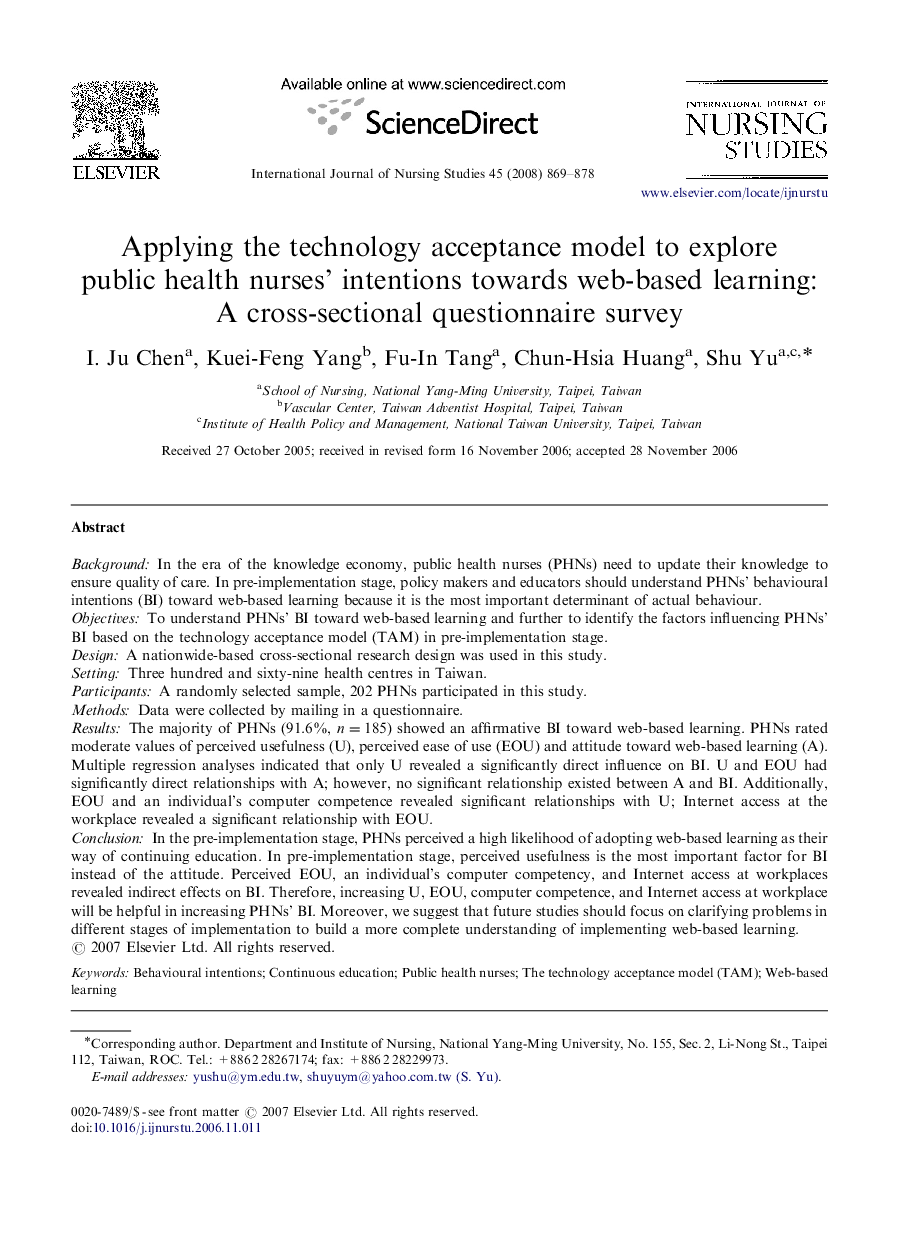| Article ID | Journal | Published Year | Pages | File Type |
|---|---|---|---|---|
| 1077812 | International Journal of Nursing Studies | 2008 | 10 Pages |
BackgroundIn the era of the knowledge economy, public health nurses (PHNs) need to update their knowledge to ensure quality of care. In pre-implementation stage, policy makers and educators should understand PHNs’ behavioural intentions (BI) toward web-based learning because it is the most important determinant of actual behaviour.ObjectivesTo understand PHNs’ BI toward web-based learning and further to identify the factors influencing PHNs’ BI based on the technology acceptance model (TAM) in pre-implementation stage.DesignA nationwide-based cross-sectional research design was used in this study.SettingThree hundred and sixty-nine health centres in Taiwan.ParticipantsA randomly selected sample, 202 PHNs participated in this study.MethodsData were collected by mailing in a questionnaire.ResultsThe majority of PHNs (91.6%, n=185) showed an affirmative BI toward web-based learning. PHNs rated moderate values of perceived usefulness (U), perceived ease of use (EOU) and attitude toward web-based learning (A). Multiple regression analyses indicated that only U revealed a significantly direct influence on BI. U and EOU had significantly direct relationships with A; however, no significant relationship existed between A and BI. Additionally, EOU and an individual's computer competence revealed significant relationships with U; Internet access at the workplace revealed a significant relationship with EOU.ConclusionIn the pre-implementation stage, PHNs perceived a high likelihood of adopting web-based learning as their way of continuing education. In pre-implementation stage, perceived usefulness is the most important factor for BI instead of the attitude. Perceived EOU, an individual's computer competency, and Internet access at workplaces revealed indirect effects on BI. Therefore, increasing U, EOU, computer competence, and Internet access at workplace will be helpful in increasing PHNs’ BI. Moreover, we suggest that future studies should focus on clarifying problems in different stages of implementation to build a more complete understanding of implementing web-based learning.
